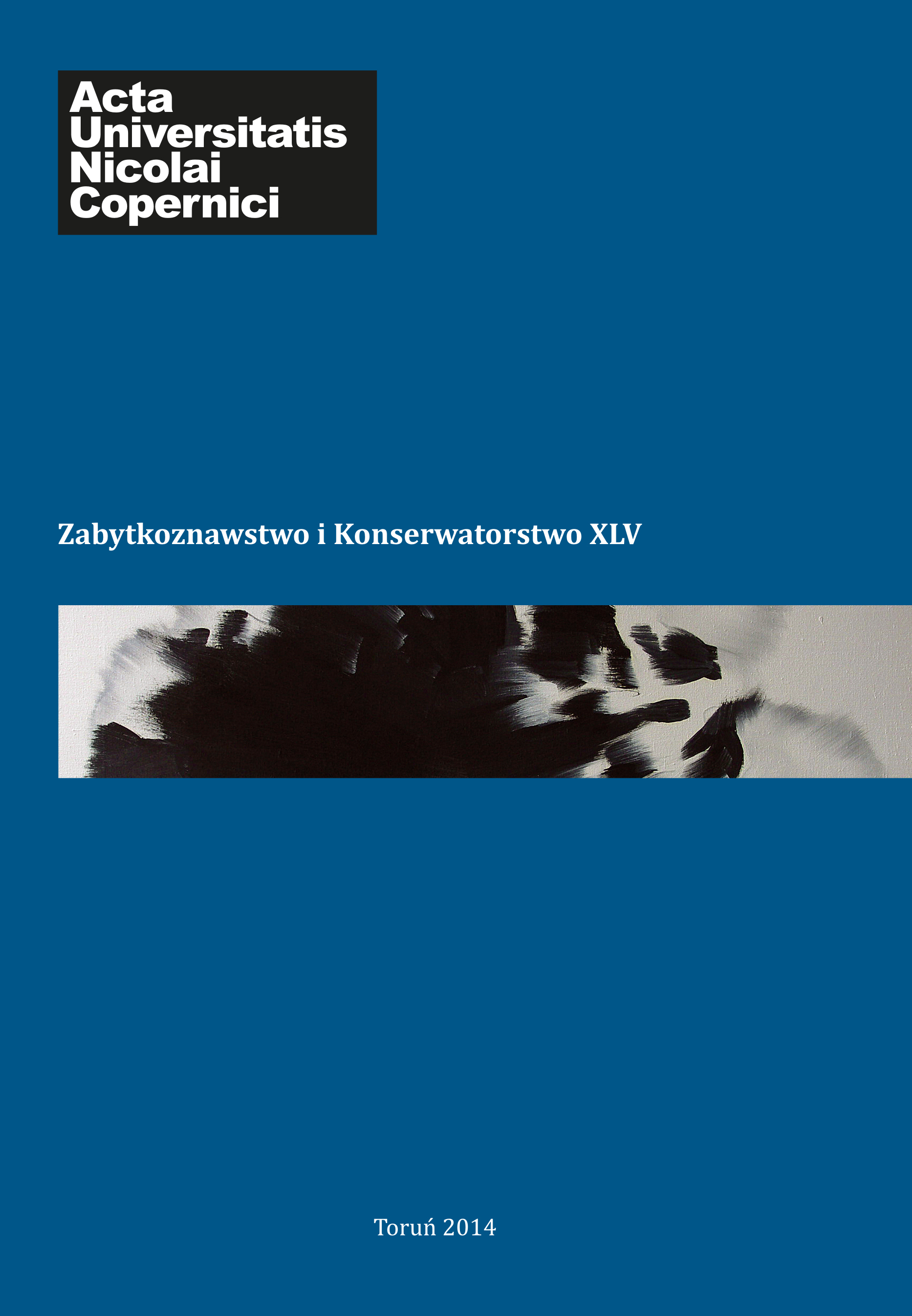Metody pobierania próbek do badań organizmów niszczących zabytki
DOI:
https://doi.org/10.12775/AUNC_ZiK.2014.017Słowa kluczowe
pobieranie próbek do badań, organizmy niszczące zabytki, biodeterioracja, badania mikrobiologiczne zabytków, mikroorganizmyAbstrakt
Methods of sampling for the biological research of cultural heritage
In the conservatory practice historic items deteriorated by microorganisms – moulds, bacteria, aerophilic algae – and higher organisms – wood-destroying fungi, insects, lichens and mosses – are encountered quite frequently. Properly taken samples are then necessary to estimate the vitality of microorganisms, to identify the species of the organisms causing biodeterioration and to choose the optimal combating method. Only the properly taken samples are useful to the research made by specialists in various filds of biology. The sampling conducted by a conservator and a biologist together is not always possible, therefore this work presents some instructions for conservators facilitating them the unassisted appropriate sampling of microorganisms as well as wood-destroying fungi, lichens, mosses and insects. The rules concerning the sampling of biofim to the microbiological research are discussed, including methods aiming for the culturing and identifiation of microorganisms. The methods of sampling for other investigation of the microorganisms are also presented, namely the print on transparent Scotch tape, sampling to the SEM observation and bioluminescence assay owing to which the estimation of contamination a surface by living microorganisms is possible. Moreover, the instructions for the proper sampling of wood-destroying fungi as well lichens, mosses and insects are discussed. The special attention is paid to the caution required during the sampling to avoid any further destructions of the historic support weakened by the activity of the deteriorating organisms.
Pobrania
Opublikowane
Jak cytować
Numer
Dział
Licencja
CC BY-ND 4.0. Posiadaczem prawa autorskiego (Licencjodawcą) jest Autor, który na mocy umowy licencyjnej udziela nieodpłatnie prawa do eksploatacji dzieła na polach wskazanych w umowie.
- Licencjodawca udziela Licencjobiorcy licencji niewyłącznej na korzystanie z Utworu/przedmiotu prawa pokrewnego w następujących polach eksploatacji: a) utrwalanie Utworu/przedmiotu prawa pokrewnego; b) reprodukowanie (zwielokrotnienie) Utworu/przedmiotu prawa pokrewnego drukiem i techniką cyfrową (e-book, audiobook); c) wprowadzania do obrotu egzemplarzy zwielokrotnionego Utworu/przedmiotu prawa pokrewnego; d) wprowadzenie Utworu/przedmiotu prawa pokrewnego do pamięci komputera; e) rozpowszechnianie utworu w wersji elektronicznej w formule open access na licencji Creative Commons (CC BY-ND 4.0) poprzez platformę cyfrową Wydawnictwa Naukowego UMK oraz repozytorium UMK.
- Korzystanie przez Licencjobiorcę z utrwalonego Utworu ww. polach nie jest ograniczone czasowo ilościowo i terytorialnie.
- Licencjodawca udziela Licencjobiorcy licencji do Utworu/przedmiotu prawa pokrewnego nieodpłatnie na czas nieokreślony
PEŁEN TEKST UMOWY LICENCYJNEJ >>
Statystyki
Liczba wyświetleń i pobrań: 1261
Liczba cytowań: 0



